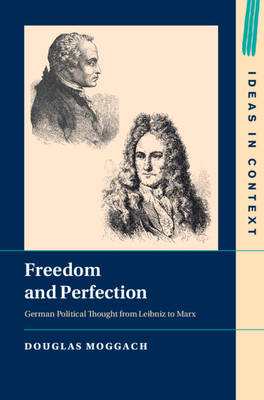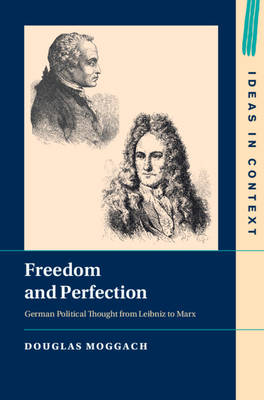
- Afhalen na 1 uur in een winkel met voorraad
- Gratis thuislevering in België vanaf € 30
- Ruim aanbod met 7 miljoen producten
- Afhalen na 1 uur in een winkel met voorraad
- Gratis thuislevering in België vanaf € 30
- Ruim aanbod met 7 miljoen producten
Zoeken
€ 194,95
+ 389 punten
Omschrijving
Leibniz, this study argues, is the genuine initiator of German Idealism. His analysis of freedom as spontaneity and the relations he establishes among freedom, justice, and progress underlie Kant's ideas of rightful interaction and his critiques of Enlightened absolutism. Freedom and Perfection offers a historical examination of perfectionism, its political implications and transformations in German thought between 1650 and 1850. Douglas Moggach demonstrates how Kant's followers elaborated a new ethical-political approach, 'post-Kantian perfectionism', which, in the context of the French Revolution, promoted the conditions for free activity rather than state-directed happiness. Hegel, the Hegelian School, and Marx developed this approach further with reference to the historical process as the history of freedom. Highlighting the decisive importance of Leibniz for subsequent theorists of the state, society, and economy, Freedom and Perfection offers a new interpretation of important schools of modern thought and a vantage point for contemporary political debates.
Specificaties
Betrokkenen
- Auteur(s):
- Uitgeverij:
Inhoud
- Aantal bladzijden:
- 356
- Taal:
- Engels
- Reeks:
- Reeksnummer:
- nr. 156
Eigenschappen
- Productcode (EAN):
- 9781009590433
- Verschijningsdatum:
- 14/08/2025
- Uitvoering:
- Hardcover
- Formaat:
- Genaaid
- Afmetingen:
- 152 mm x 229 mm
- Gewicht:
- 644 g

Alleen bij Standaard Boekhandel
+ 389 punten op je klantenkaart van Standaard Boekhandel
Beoordelingen
We publiceren alleen reviews die voldoen aan de voorwaarden voor reviews. Bekijk onze voorwaarden voor reviews.







